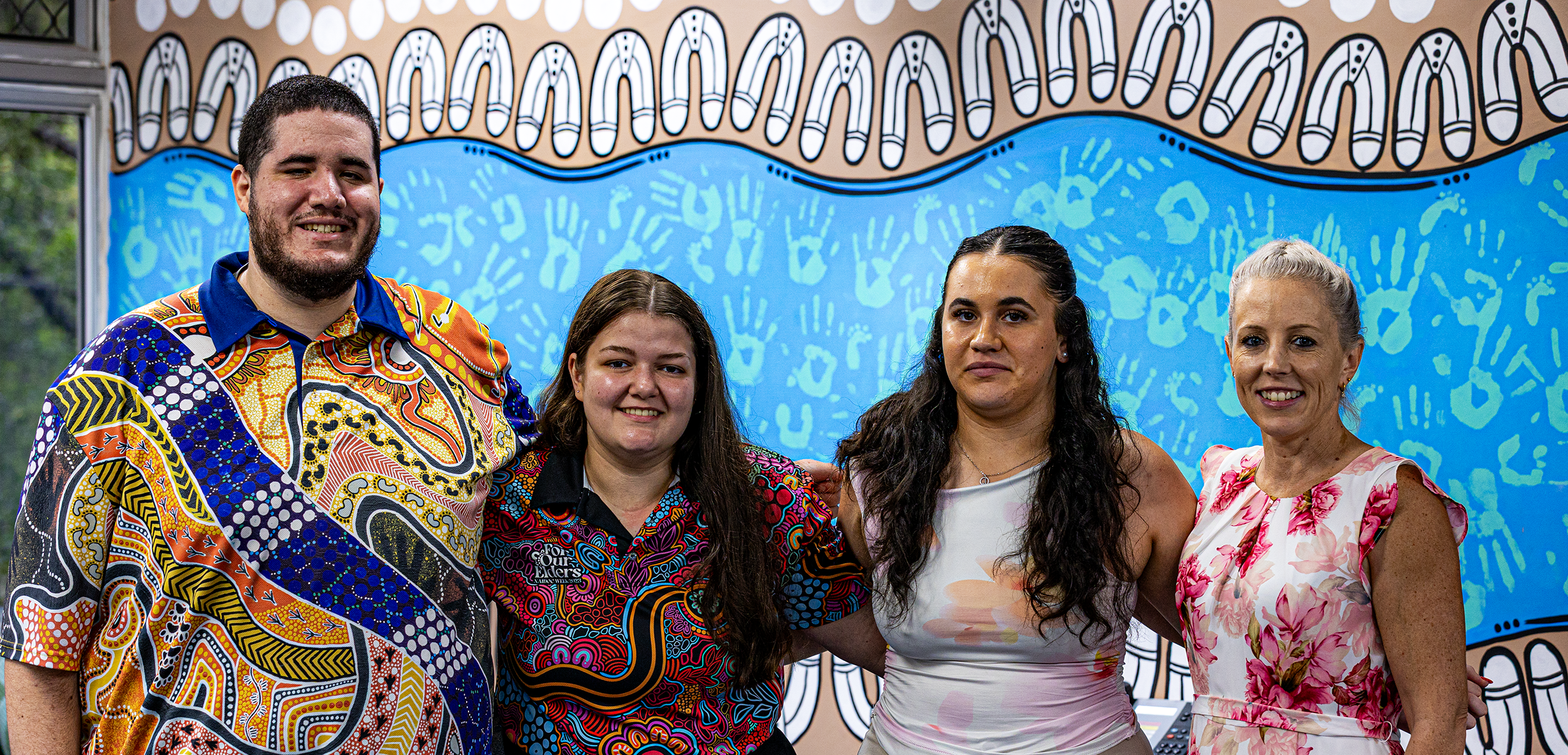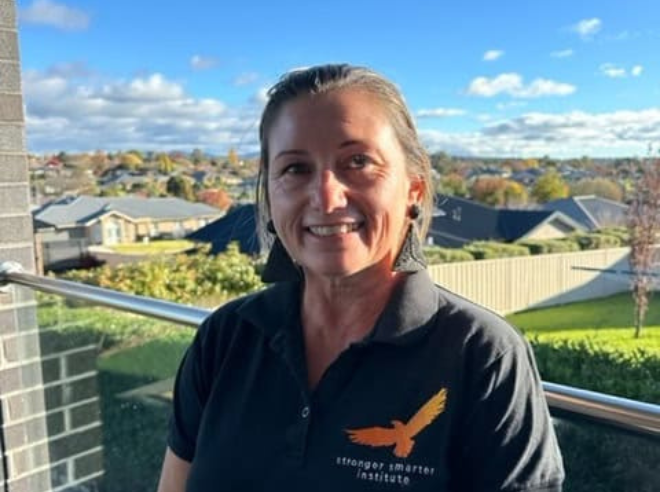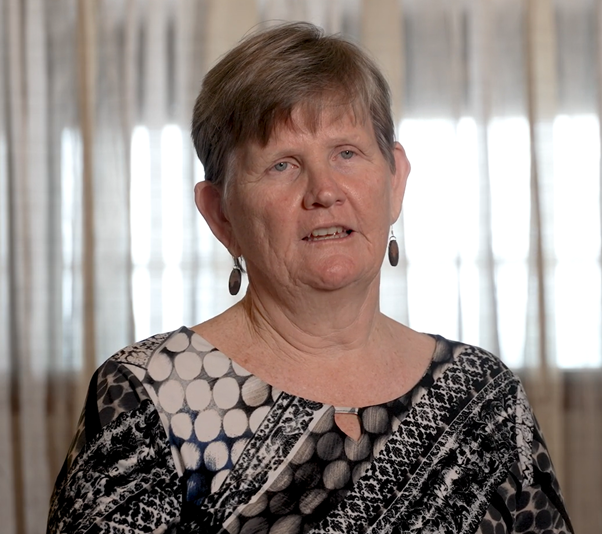
A focus on reflective and relational practice
Dr Ann Morgan, Edmund Rice Flexi Schools and University of Queensland
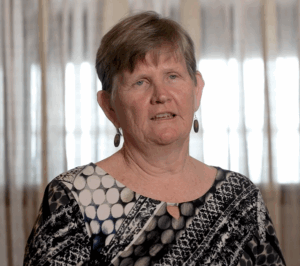 Dr Ann Morgan completed the Stronger Smarter Leadership Program and Stronger Smarter Specialists Program in 2024. In this interview, she talks about what resonated with her from these programs and how she has been able to include strategies from the Stronger Smarter Approach in her work.
Dr Ann Morgan completed the Stronger Smarter Leadership Program and Stronger Smarter Specialists Program in 2024. In this interview, she talks about what resonated with her from these programs and how she has been able to include strategies from the Stronger Smarter Approach in her work.
Dr Ann Morgan undertook the Stronger Smarter Leadership Program in 2024 when she was working with Edmund Rice Flexi Schools. Now in a new position with the University of Queensland, she says that even though her context has changed, the principles and concepts of the Stronger Smarter Approach are still relevant. “I think the program gave me a lot more confidence to step forward and step up into that responsibility, to be a better ally,” she says. “That’s something I guess I’ve aspired to. You can be a leader whether you’re in a classroom, in your family, in your community or in a university. It’s the same principles of relational practice.”
Supporting Reflective Practice
“I love the Stronger Smarter Approach which focuses on relational practice and high-expectations relationships rather than getting stuck in deficit views,”
Throughout her career, Ann has focussed on reflective practice. “I love the Stronger Smarter Approach which focuses on relational practice and high-expectations relationships rather than getting stuck in deficit views,” she says. “I think one of the big questions for me is to really understand what has shaped me as an educator in my thinking, so that I can shift those out-of-awareness biases and prejudices and limited expectations.”
Ann’s ‘Workplace Challenge’ from the Leadership Program was to work with staff teams around reflective practise and helping people to own their standpoint. She says it was important to provide the space and the permission for people to recognise the impact of their cultural conditioning. “I was inspired to do that in ways that’s not blaming or shaming but just opening up. We’ve all been conditioned and the sooner you just own it, name it and ask, does this really align with how I want to be? No, it doesn’t. OK, so forget the guilt trip, what can I change in my actions?”
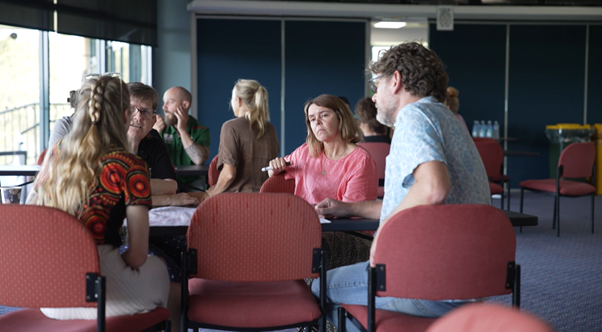
Supporting young people
So what I love about the Stronger Smarter Approach is that we can be much more aware of the oldest living culture on the planet. The first educators. And we can learn how to work more collaboratively and co-design together with practices of knowing, being and doing that suit all young people.”
Ann says that much of her work in flexi schools was about different ways of working with young people, looking at relationships first and treating young people with respect and dignity. “When people are treated with respect rather than as the problem, big changes happen,” she says. “Our young people have had lots of complex things going on in their lives and mainstream school hasn’t always worked for them. But they have immense potential. So what I love about the Stronger Smarter Approach is that we can be much more aware of the oldest living culture on the planet. The first educators. And we can learn how to work more collaboratively and co-design together with practices of knowing, being and doing that suit all young people.”
Ann suggests that as educators become more confident in the processes of the Stronger Smarter Approach they will be better placed to support young people to recognise their strengths, believe that they can achieve and celebrate their learning. “We can build that capacity to really think about ‘what is the potential, what is the capacity of our young people to achieve great outcomes that work for them, that suit their interests, their needs’,” she says.
The Stronger Smarter Leadership Program
“Doing both programs last year has been a highlight of my professional development.”
Edmund Rice Flexi Schools worked strategically to firstly engage their leaders in the Stronger Smarter Leadership Program and then move to involving schools. “We noticed that when the schools had the opportunity to take up the learning, they loved it,” Ann says. Ann says the strength of the SSLP comes when schools embrace the program with their whole staff teams. “Where people get that shared experience, shared language, shared expectations, you’re able to then have those challenging conversations, conversations where you can say, ‘Remember we did this. Remember we learnt that. What are we doing now? How do we bring it back to what we hoped we’d be able to achieve’,” she says.
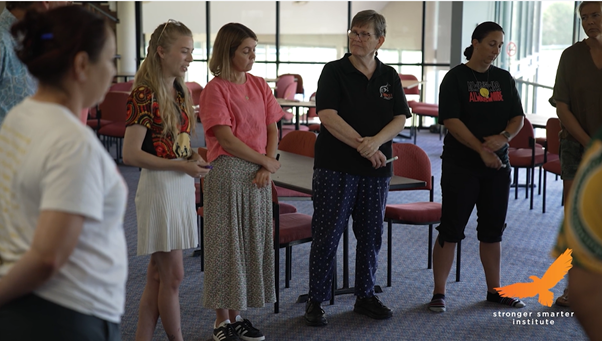
Ann says she loved the participative nature of the SSLP and will continue to use Stronger Smarter strategies in her work. “Doing both programs last year has been a highlight of my professional development,” she says. “I loved the way all the processes were culturally informed, whether it’s yarning circles or being relational and connecting and having high expectations relationships. I loved the way critical reflection was embedded throughout, and even though we were confronted by our own whiteness and our own attitudes, it was really powerful, the way that that was done, establishing a sense of community and safety.”
Ann says, that one of the things that resonated with her from the SSLP was resilience. “It is getting caught up in negativity that makes you stuck,” she says. “Instead to see it for what it is and to think ‘where do I put my energy’ and just keep moving on and being resilient. I think that’s been a real gift for me.”
View more Alumni stories and Case studies here.
If you would like to implement the Stronger Smarter Approach at your school, join a Stronger Smarter Leadership Program.

